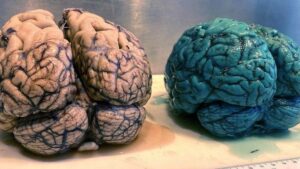“Are Your Health Beliefs Misinforming You? Discover 15 Common Myths That Could Be Harming Your Well-Being!”
Have you ever found yourself questioning that nugget of wisdom your well-meaning relative swore by—like skipping breakfast to lose weight or loading up on kale to be “healthy”? While the adage “sharing is caring” holds true in many contexts, it can become a health hazard when advice transforms into misunderstandings that may not be rooted in fact. We’re bombarded by countless health beliefs, from family traditions to trending diets, all claiming to have our best interests at heart. Unfortunately, following these widely accepted, yet dubious tips, could be leading you down the wrong path—perhaps even substituting effective treatments with unproven remedies. Join me as we unravel the truth behind 15 popular health beliefs that, despite their common acceptance, might be doing more harm than good. Ready to challenge conventional wisdom? Let’s dive in! LEARN MORE
There are many health beliefs that you have heard from society, the news, your parents, family, or friends that seem helpful for maintaining your well-being. Of course, you should trust your loved ones and the status quo; they only have your best interest in mind…right?
Following such beliefs can lead us to rely on unproven natural remedies and maybe even skip necessary medical treatments. If you blindly accept these widespread beliefs, you might also misunderstand information surrounding best nutrition or exercise practices.
That is why we should fact-check this information, realize every human body is different, and focus on proven practices for better health. This article explores 15 popular health beliefs that can ultimately do more harm than good, even when they are widely accepted as the truth.













